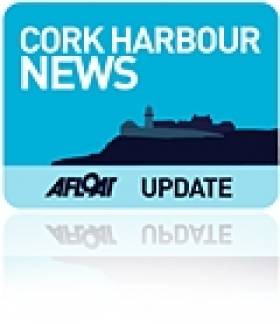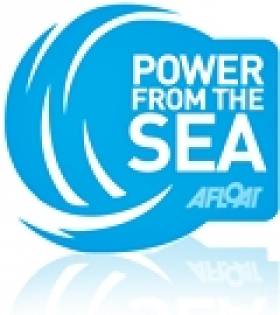Displaying items by tag: Beaufort Laboratory
#oceanwealth – A major celebration of Ireland's ocean wealth will take place in Cork harbour this summer. A two day event, 10th and 11th July, is planned for Ringaskiddy and Haulbowline in association with IMERC and with support from Beaufort Laboratory, UCC, the National Maritime College of Ireland, the Naval Service and the Marine Institute.
The event, held under the auspices of the inter-departmental Marine Coordination Group Chaired by Minister Simon Coveney, is an initiative of Ireland's Integrated Marine Plan – Harnessing Our Ocean Wealth. It will
build on the first annual Our Ocean Wealth Conference which took place in Dublin Castle last July attended by about 500 delegates.
This year the organisers hope to attract a wider audience over the two day event which will include a conference, marine technology expo, investor events, workshops, a seafood festival, family fun, and competitions.
By broadening its scope to include a range of activities open to families as well as business and potential investors, the event aims to highlight the social, cultural and economic benefits of Ireland's marine sector and provide a platform for public engagement with Ireland's marine resource.
This event is also an action in the Government's recently launched Action Plan for Jobs 2015.
New Marine Energy Lab for Cork Harbour
#POWER FROM THE SEA - A new marine research lab in Cork Harbour could help Ireland to be a global leader in renewable energy, the Irish Examiner reports.
The Beaufort Laboratory, being built on a three-acre site next to the National Maritime College of Ireland on Haulbowline Island, is set to be completed by 2016.
And scientists at the €14 million lab have told Minister for Energy Pat Rabbitte that it will be the largest marine renewable energy research facility in the world.
Expected to be a base for 135 researchers from University College Cork (UCC), the lab also hopes to attract the world's top researchers in marine energy to the area, with an aim to exploiting the potential for jobs in the fast-growing ocean energy sector.
The new lab forms part of the Irish Maritime and Energy Resource Cluster (IMERC) established to promote the country as a world-renowned research and development location, as previously reported on Afloat.ie.
The Irish Examiner has more on the story HERE.

























































